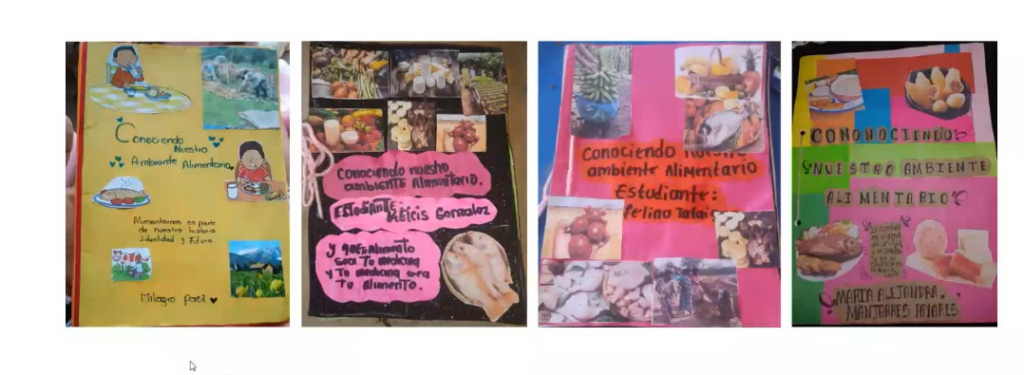With the aim of reflecting and acting in their communities as promoters of an adequate food culture, 71 young people strengthened their capacities through a virtual course.
Paulo Beraldo and Palova Brito
April 14, 2025, Bogotá, Colombia – On April 10, the course “School Feeding as a Strategy for the Progressive Realization of the Human Right to Adequate Food: Young Agents of Change” was successfully completed, training 71 young people from more than 20 departments in Colombia.
The initiative was jointly promoted by the Food and Agriculture Organization of the United Nations (FAO) in Colombia, the Ministry of Cultures, Arts and Knowledge of Colombia, and the Sustainable School Feeding Network (RAES).
The aim of the course was to strengthen the capacities of young people so they could reflect and act in their communities as true agents of change, promoting a food culture as a strategy to achieve the Human Right to Adequate Food. At the end, the participants developed projects with proposals to improve food culture in their local environments.
The RAES Network is a South-South cooperation initiative jointly implemented by the Brazilian Cooperation Agency of the Ministry of Foreign Affairs (ABC/MRE) and the National Fund for Educational Development (FNDE/MEC), with the executive secretariat of FAO.

According to Laura Arévalo, FAO specialist in Colombia, the course was based on the premise that food culture is fundamental to a country’s history and is directly linked to the right to healthy and sustainable food, in harmony with culture and the environment. She also highlighted the importance of fostering youth leadership in communities. “Focusing on young people is essential because they have a key role as agents of change in protecting and promoting food culture, supporting local producers, learning traditional recipes, and becoming more aware of what they consume.”
“It is a dream come true to conclude this course, which represents mutual learning for FAO, the Ministry, and the young people involved in this process. With it, we reaffirm the importance of this policy, of knowledge, and of safeguarding traditional kitchens in Colombia. We hope that this process continues and that this seed keeps bearing fruit,” said Ruth Flórez, Coordinator of the Intangible Cultural Heritage Group, Directorate of Heritage and Memory of the Ministry of Cultures, Arts and Knowledge.
Michela Espinosa, senior specialist in food and combating malnutrition at FAO Colombia, also emphasized the relevance of focusing the course on children, adolescents, and youth. She also thanked the institutions, teachers, families, and the 71 participants for the “important role they play in the right to food and food sovereignty.”
Najla Veloso, executive secretary of the RAES Network, expressed her excitement at seeing the results: “From the Brazil–FAO International Cooperation, with Colombia and other countries in Latin America and the Caribbean, we want to see more actions like this. Promoting the human right to adequate food is not just about talking about healthy food, it’s about understanding its true meaning.”
According to Najla Veloso, actions like this course allow young people to change their own habits and positively impact their families and future generations. “This work is an example of what the world expects today in terms of nutrition, health, and culture.”
The course
The course “School Feeding as a Strategy for the Progressive Realization of the Human Right to Adequate Food: Young Agents of Change” was developed in four thematic sessions focused on the Human Right to Adequate Food. The first session addressed the foundations of the human rights-based approach and the conceptual aspects of it, highlighting its importance in the current context. Connections between the right to food, food culture, and the role of various actors in its promotion and defense were also explored.

Another axis was community participation, analyzing how each person can become an agent of change within their environment. The value of food culture and memory was highlighted, recognizing traditional practices and local knowledge, as well as acknowledging those who make food possible through food care. The final session focused on food environments and food and nutrition education, presenting concrete strategies to influence the transformation of local realities through training and knowledge.
The course lasted six weeks, with a total workload of 30 hours distributed among weekly synchronous classes (1 hour and 30 minutes), asynchronous activities (2 hours per week), and the development of a final project (10 hours).
Content platform






